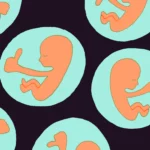Blog Post
Israeli researchers unveil ghastly plan to create embryos for organ harvesting
By Jonathon Van Maren
In 2005, Hollywood released a film titled The Island, a dystopian story about a group of people who live their strictly regimented lives in a facility. The story focuses on a worker named Lincoln Six Echo who, through a series of coincidences, discovers the horrifying truth about the facility he lives in and the fate he and his fellow residents face: They are clones created for the purpose of organ harvesting should those who paid for their creation ever need it. They are human beings, yes—but the sole purpose for their existence is to be a supply of spare organs and body parts.
A few years ago a pro-life leader noted in an interview that the film carried inherently anti-abortion messages. As it turns out, The Island could turn out to be prophetic, too. The Israel-based biotech firm Renewal Bio is hoping to create “synthetic” human embryos for the explicit purpose of harvesting their organs for both transplanting as well as treating infertility, aging, and genetic diseases. According to the New York Post, Renewal Bio has “claimed that it successfully used advanced stem cell technology and artificial wombs in order to grow mouse embryos which continued to develop for several days.”
Now that the process has worked with mouse embryos, which the MIT Technology Review says stayed alive “until they developed beating hearts,” blood flow, and the beginnings of a brain, researchers want to use the same process to create human embryos. Jacob Hanna of the Weizmann Institute of Science in Israel and the founder of Renewal Bio published the results in the journal Cell. He is enthusiastic about the potential. “The embryo is the best organ-making machine and the best 3D bioprinter—we tried to emulate what it does. Remarkably, we showed that embryonic stem cells generate whole synthetic embryos, meaning this includes the placenta and yolk sac surrounding the embryos.”
READ THE REST OF THIS COLUMN HERE








